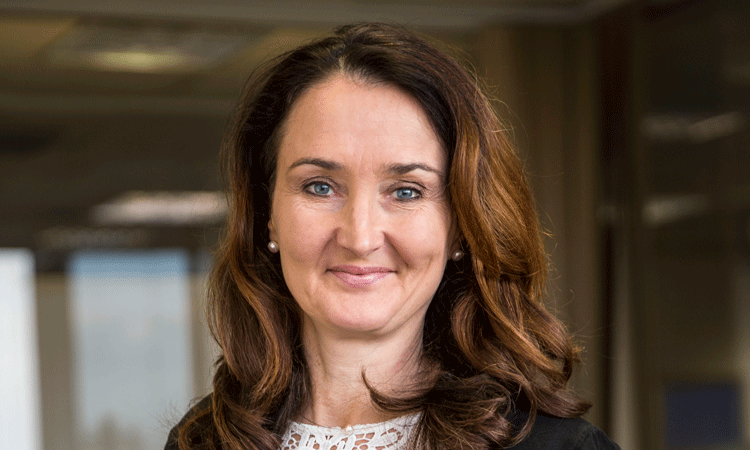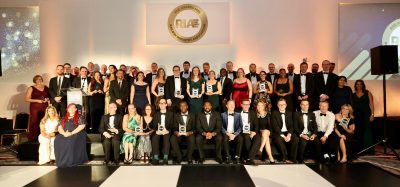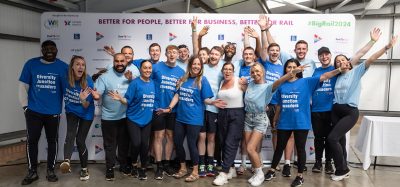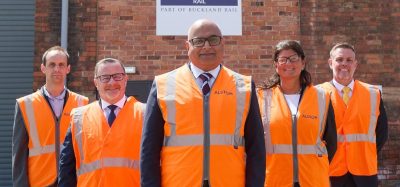An interview with Kate Marjoribanks, Engineering Director, Arriva Rail London
Posted: 9 January 2019 | Global Railway Review | No comments yet
Kate Marjoribanks joined Arriva Rail London (ARL) as its new Engineering Director in November 2018, bringing with her a wealth of experience in the rail industry. In an interview with Global Railway Review, Kate shares details of her rail career so far, how her new position will allow her to focus on new fleet introductions for London Overground, and she comments on the importance of encouraging more women to work in the rail industry.


You’ve held an impressive 25-year career in rail so far – tell me about your journey in this sector, and what attracted you to work in rail in the first place?
Thank you, I have had some great opportunities throughout my career, and despite working in the rail industry since 1994 I have had a lot of variety.
While an engineering undergraduate, I worked in military shipbuilding for the three-month blocks over the summer breaks which was an amazing experience and cemented my interest in engineering as a career. Although I enjoyed shipbuilding, I felt that rail was something I could get really passionate about – moving and connecting people, and an environmentally positive industry.
I joined British Rail just at the start of the privatisation process which was an interesting time to get involved in the industry. Allocated to one of the rolling stock leasing companies, Angel Trains, I worked on several really interesting projects before joining a train operating company, North London Railways. My first job on a train maintenance depot was excellent experience both technically and from a people perspective. From the start of my career I was lucky enough to meet engineers and managers who have been colleagues (and friends) and very useful contacts over the years.
Historically dominated by males, what do you think the industry must do to attract more women to build careers in rail?
There is a lot of good work going on throughout the industry to try to encourage more women to consider a career in rail, from Women in Rail to company-based initiatives. Positive role models are key to inspiring more women to work in rail. We need to show girls at school and women starting out in their careers, that working in the rail industry gives fantastic and varied opportunities. I have met some amazing, supportive and generous people throughout my career, and have worked in cities from Edinburgh to Auckland with London, Copenhagen, Johannesburg and Philadelphia on the way. As well as rewarding and technically-challenging projects, I have had the opportunity to work flexibly after having my daughter and made some friends for life through the railway. There are many positive stories to be told and I think we need to keep telling them.
How has engineering within the rail industry changed over the last 15 years?
In my view, the key change in rolling stock engineering at the moment is the move from electronic to software-controlled trains. The new generation of fleets being introduced are primarily software controlled. Controlling train systems through an IP backbone reduces wiring required, which should help maintainability and reduce weight. The change for rolling stock engineers comes in how we integrate systems, the interface with the operator and how we control change. As new fleets are introduced across the UK displacing older technology, we are moving from maintenance with a spanner to maintenance with a laptop, or more likely a tablet with a contactless connection to the train. Train maintenance depots have in the past been quite traditional heavy engineering sites with all that entails, but maintenance of new fleets require different skills and a different environment, and this change is well underway.
What has been your greatest achievement in the rail industry so far?
Nothing I have achieved has been delivered on my own – one of the best things about working in this industry is the great people that you get to meet and collaborate with. I have been lucky to work with many excellent teams through my career and it is hard to pull out one specific project that fits the bill. One of the jobs that I look back on with the most pride is probably my time as Depot Manager at South West Trains’ Wimbledon depot about 10 years ago. It was a fantastic place to work, with amazing people from the technical team, production management, fitters, cleaners, stores and support staff. I was only there for two years but I feel that we really developed a good team, improved our processes, delivered some challenging changes relating to rosters and ways of working. When I moved on it was great to see the fleets maintained there continue to go from strength to strength, becoming class leaders in terms of reliability.
What attracted you to accept a role at ARL?
London Overground is going through an incredibly exciting time at the moment. Transport for London (TfL) has procured new trains which will be introduced into service, we are celebrating a year of Night Overground operations, and there are more service enhancements coming. Working closely with TfL in a concession framework was not something I had done previously and was keen to understand how that would work. I had also worked previously with several members of the ARL team in other TOCs over the years so knew I would be joining a great team. In addition, I was delighted to be back in the Arriva family having been with Arriva when I was Engineering Director at Chiltern Railways.
What will your focus be during your first 12 months at ARL, and how can your experience help deliver a world-class railway for passengers?
During the first 12 months I will be focusing on three things: Supporting the introduction of the new 710 units to passenger service; resilience and reliability of the 378 fleet; and of course, safety. The 710 fleet is in the process of going through testing and approvals and once driver training is complete, we’ll have it in passenger service in the near future. The fleet brings great benefits to our passengers and I hope my experience working with Bombardier on new fleet introductions can help make sure we get the fleet operating reliably as quickly as possible. Another key focus will be improving the reliability and resilience of the class 378 fleet that currently provides most of London Overground’s services. In my experience, having a robust process to monitor and manage fleet performance is essential to grow fleet reliability and deliver exceptional service for our passengers.
Related topics
Related organisations
Bombardier Transportation, Transport for London (TfL), Women In Rail







